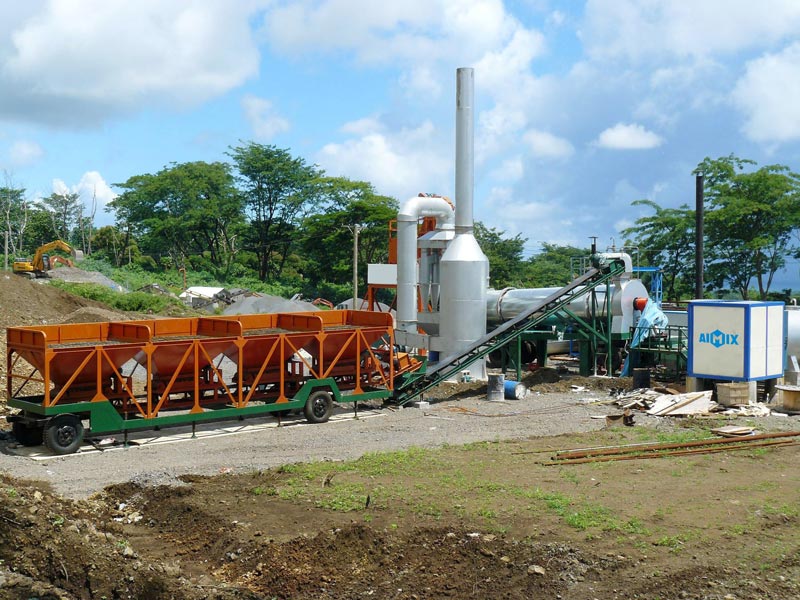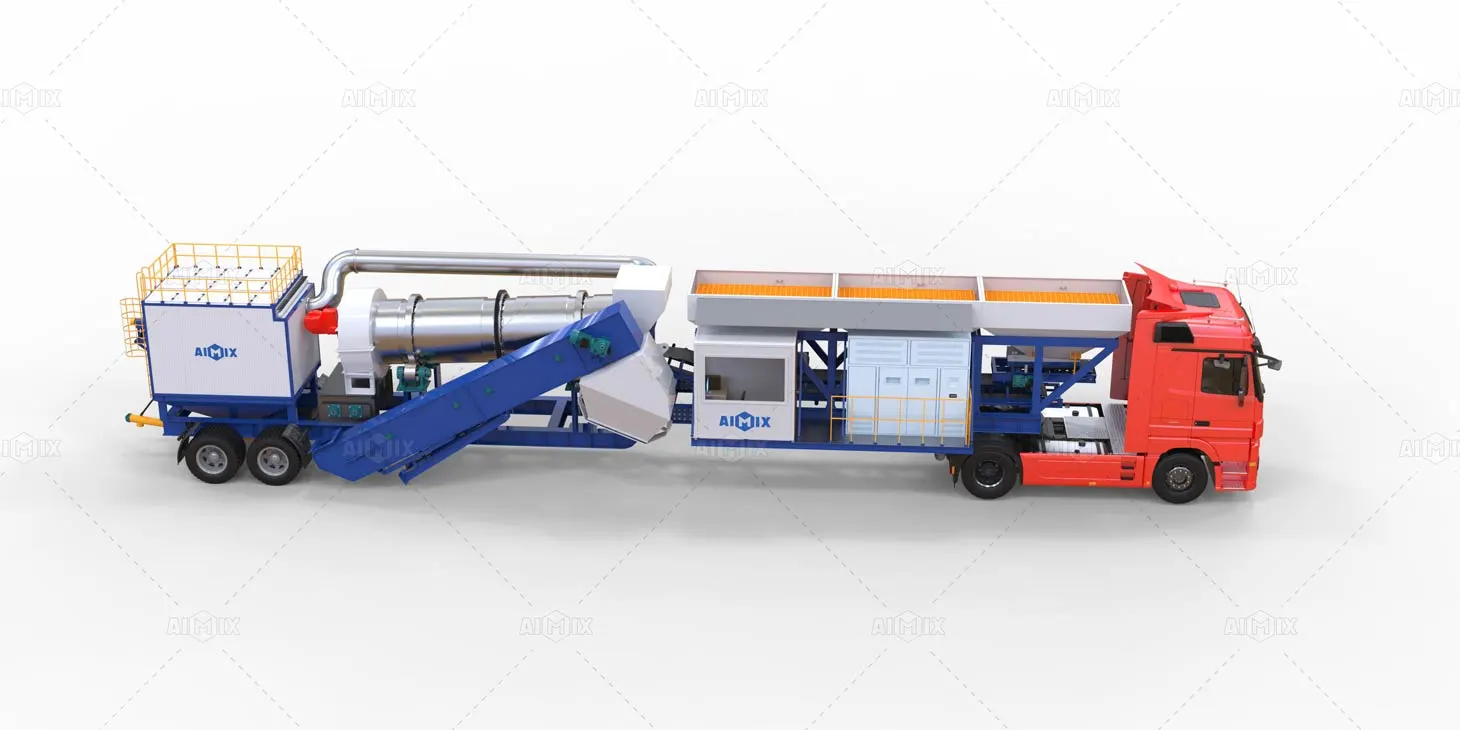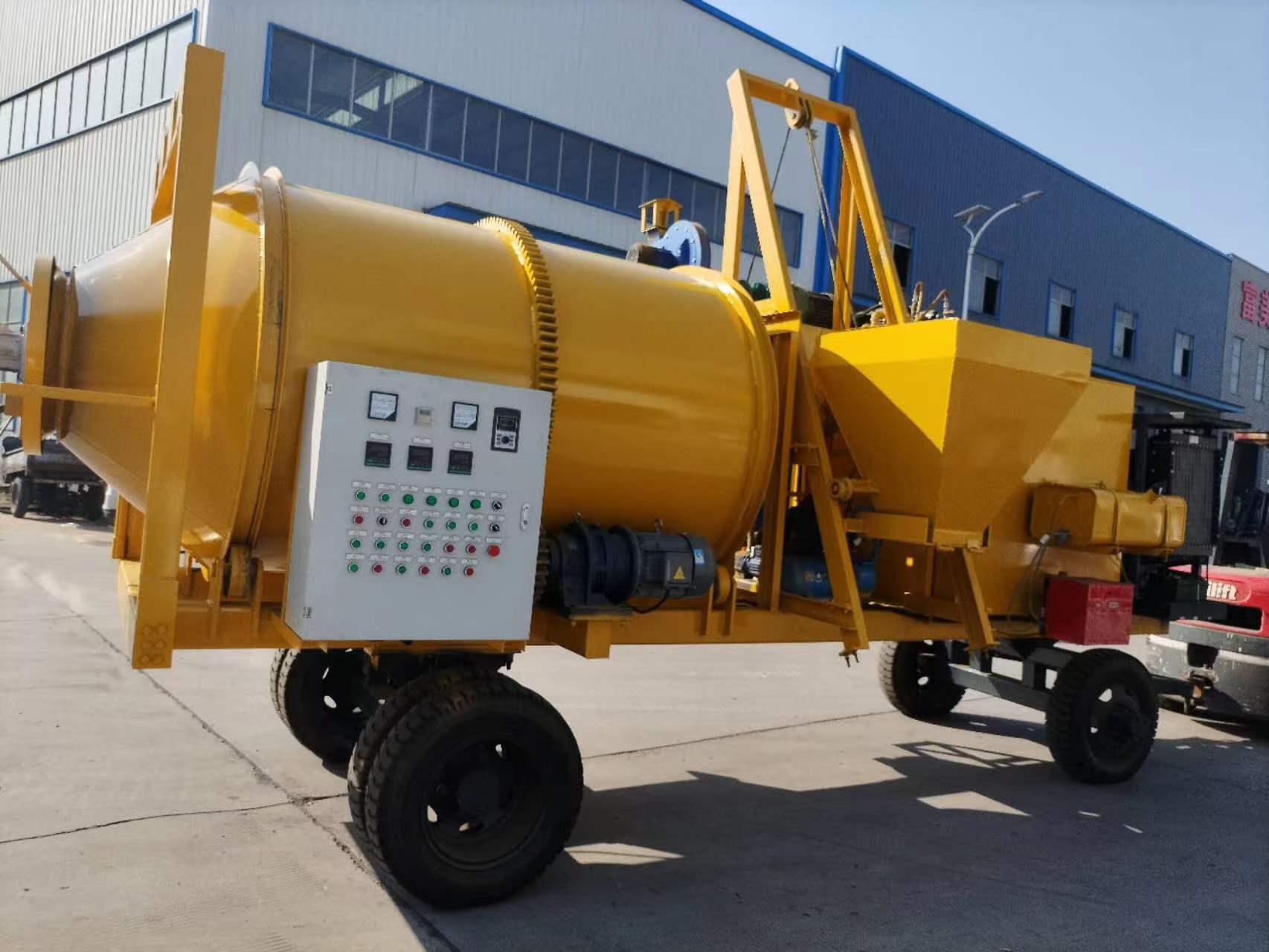Have you ever come across an asphalt plant on the side of the road? These essential facilities play a crucial role in road construction and maintenance. Whether it’s a narrow countryside path, a bustling highway, or a busy port area, asphalt plants can be found in various settings, each with unique characteristics.

Application Scenario of Asphalt Mixing Plant
Take the above example of the three locations. In the countryside road maintenance and renovation site, you can often see a mini asphalt plant, this mobile and flexible small equipment has a modular design that can be quickly disassembled and assembled, and it is especially suitable for narrow terrain operations.
In the highway reconstruction and expansion project, the standard specification of asphalt plant equipment is often fixed in the middle of the construction section through the closed steel structure to achieve large-scale production.
It is worth noting that in the port terminal area, a portable asphalt plant is often set up adjacent to the aggregate yard due to the advantages of waterway transportation. This “front port after the plant” mode can significantly reduce the cost of transportation of raw materials.

Choosing the Right Asphalt Plant
The selection of an asphalt plant depends on several factors, including the type of work, project scale, and asphalt plant price. For smaller projects or those with limited space and budget, mini asphalt plants are often the most suitable option. They provide a balance between cost, efficiency, and functionality, making them versatile for various applications.

Advantages of Mini Asphalt Plants
Mini asphalt plant offer numerous benefits that make them a popular choice for many road construction and maintenance projects:
- Cost-Effectiveness: Mini asphalt plants significantly reduce procurement costs, often by up to 60% compared to larger plants. This makes them an attractive option for projects with budget constraints.
- Flexibility and Mobility: Their modular design allows for easy transportation and quick assembly. Contractors can move these plants between different job sites as needed, maximizing their utility.
- Space Efficiency: Requiring only a small area (about the size of a standard basketball court), mini asphalt plants are ideal for projects in confined spaces where larger plants would be impractical.
- Environmental Friendliness: Mini asphalt plants are designed to be more environmentally friendly. They use less energy, generate fewer emissions, and create less noise compared to traditional plants.
- Quick Setup and Production: These plants can be operational within a short period, allowing projects to commence without unnecessary delays. They excel in producing asphalt quickly, meeting project deadlines without compromising quality.
Understanding the different types of asphalt plants and their specific advantages is crucial for selecting the right equipment for your project. Mini asphalt plants, with their cost-effectiveness, flexibility, and environmental benefits, have become increasingly popular in the construction industry. Whether you’re working on a small rural road or a large urban development, choosing the appropriate asphalt plant can significantly impact the success and efficiency of your project.